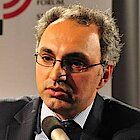The recent arrest of Istanbul’s mayor, Ekrem İmamoğlu, sought to weaken, even incapacitate the opposition Republican People’s Party (CHP). At the same time, the move was to act as a deterrent to the party’s supporters in order to nip political resistance in the bud. The plan was to place the administration of the city of Istanbul with its 16 million inhabitants under state control and hand the CHP over to a government trustee. In doing so, the intention was that the party would become embroiled in internal power struggles, thus neutralising it as a political force. But things did not turn out as expected: instead of being incapacitated, the CHP responded with remarkable unity and demonstrated an impressive ability to mobilise. Expressions of solidarity from across the country served only to reinforce the party’s cohesion and positioned it once again as the leading force of the democratic opposition.
While the protests that began in Istanbul, Ankara and Izmir quickly spread to become a nationwide resistance movement against President Recep Tayyip Erdoğan, CHP party chairman Özgür Özel convened an extraordinary party congress. This was intended as a preventive measure against a potential decision of the Supreme Electoral Council to annul his 2023 election, given that the latter tends to act to the detriment of Turkey’s opposition parties. The renewed confirmation of his election by a clear majority of delegates reinforced his leadership position within the CHP and strengthened his authority over challengers from both within and outside the party.
An increased politicisation of the youth
The civil disobedience youth movement has shown just how significant the potential for political resistance and the radicalisation of ‘Generation Z’ is — the very generation that had, in the past, often been seen as apolitical. Their rejection of Erdoğan’s growing autocratic power marks a turning point in the political attitudes of young people. At the same time, women are increasingly raising their voices, too. Activists from the CHP women’s organisation are showing their determination and fighting spirit, demonstrating their intransigence against repression, as their slogan ‘We will continue our resistance until İmamoğlu is released’ illustrates.
The enthusiastic support many young people have shown Istanbul’s mayor has a lot to do with the concrete measures he has implemented. Scholarship programmes, cultural activities and the creation of new public spaces have noticeably improved the quality of life in the city. These initiatives have been met with widespread approval, especially among the younger population, and have served to increase confidence in İmamoğlu’s political vision. ‘By increasing the amount of student accommodation in the city, İmamoğlu has freed many students from their dependence on housing provided by religious groups — something that was heavily promoted under the AKP’ Ayhan Kaya, a renowned sociologist and expert on youth radicalisation at Istanbul’s Bilgi University, concluded. For many years, the CHP distanced itself from street protests. Now, however, young people’s political activism has been a clear driver of the CHP taking a leading role in those very same protests. The increasing politicisation of the younger generation has encouraged the party to play a more active role in the protest movements.
In March, the polls placed İmamoğlu ahead of the incumbent president with 45.7 per cent to Erdoğan’s 41.8 per cent — a trend which has since gathered momentum.
The key question that remains, however, is: Can the CHP turn the political tide and initiate a process of democratic transformation in Turkey? The party’s determined resistance has undeniably given it a political boost. While in pre-trial detention, an internal party primary election formally nominated İmamoğlu as the presidential candidate for the 2028 elections, with around 1.6 million of the total 1.7 million members voting for him. They were joined by some 13.2 million citizens who, in a symbolic nationwide vote, expressed their support for the deposed Istanbul mayor and signalled their political solidarity.
İmamoğlu is widely seen as the most promising challenger to Erdoğan in Turkey’s next presidential elections slated to take place in 2028 at the latest. In March, the polls placed him ahead of the incumbent president with 45.7 per cent to Erdoğan’s 41.8 per cent — a trend which has since gathered momentum. And the CHP as a whole has also benefitted from the political tailwind. While the pro-government Popular Alliance received 49.5 per cent of the vote in 2023, its support had fallen to just 40.5 per cent by May 2025. The CHP on the other hand saw its share of the vote grow from 25 to 32 per cent in the same period, giving it the opportunity to form a new opposition bloc. According to recent polls, an alliance between the Good Party, the New Welfare Party, the Victory Party and the Workers’ Party could win up to 45 per cent of the vote. That said, this growing popularity does not automatically mean the CHP has extensive political options.
There are still around three years to go until the next elections and the parliamentary majority de facto prevents the opposition from forcing the dissolution of parliament and calling snap elections. A premature dissolution of parliament requires a two-thirds majority which is unachievable without the support of the ultranationalist MHP and the pro-Kurdish Freedom and Democracy Party (DEM). The MHP remains firmly integrated in Erdoğan’s governing alliance, while the DEM party is holding talks with the government camp on how to solve the Kurdish question.
A break in existing power
At home, Erdoğan’s legitimacy is increasingly coming under pressure — due to his repressive measures against İmamoğlu and the Istanbul city administration as well as calculated instrumentalisation of the judiciary. Even within his own party discontent is spreading. With his foreign policy approach, however, Erdoğan has managed to offset this pressure and sharpen his profile. Playing the role of mediator in the Russia-Ukraine war, a security partner for the EU and a stabilising force in Syria, Erdoğan presents himself as an internationally respected statesman. The PKK’s decision to dissolve itself and officially end its armed struggle also gave him the opportunity to portray himself as a peacemaker and revamp his domestic political reputation.
With his strategy of a ‘terror-free’ Turkey and by entering into dialogue with the PKK founder Abdullah Öcalan, Erdoğan has cleverly driven a wedge between the CHP and the pro-Kurdish DEM Party. As a result, the pro-Kurdish DEM Party joining the government camp is a scenario that can no longer be ruled out. One way the state might achieve this is through targeted outreach moves, such as political concessions or an amnesty for PKK officials. In exchange, the DEM Party might support a constitutional amendment further extending Erdoğan’s executive powers. This possible deal highlights the fundamental tension between the policy of autonomy pursued by the Kurds and Erdoğan’s consolidation of authoritarian power.
Ekrem İmamoğlu’s arrest triggered significant economic turbulence: the Istanbul stock exchange lost 1.9 trillion Lira in capitalisation.
A break in the existing power structure only seems possible under conditions of growing economic instability — as well as sustained and indeed increasing social resistance. İmamoğlu’s arrest triggered significant economic turbulence: the Istanbul stock exchange lost 1.9 trillion Lira in capitalisation, capital flight accelerated, the key interest rate rose to 44.6 per cent and risk premiums for Turkish government bonds reached 383 basis points. These indicators reflect a massive loss of market confidence which undermines the economic and political stability of the regime.
Should this trend accelerate, individual Popular Alliance deputies might withdraw their allegiance due to growing discontent in business circles and fear of post-Erdoğan retribution. Another potential danger for the government camp is that MHP leader Devlet Bahçeli, who suffers from health issues and has not attended weekly meetings of the parliamentary party for months, might be incapacitated or at least no longer be able to discipline the party. The MHP’s internal instability would also destabilise the Popular Alliance and pave the way for a dissolution of parliament and early elections. This would, in turn, give the CHP and its presidential candidate Ekrem İmamoğlu a real chance of defeating a stricken Erdoğan.






